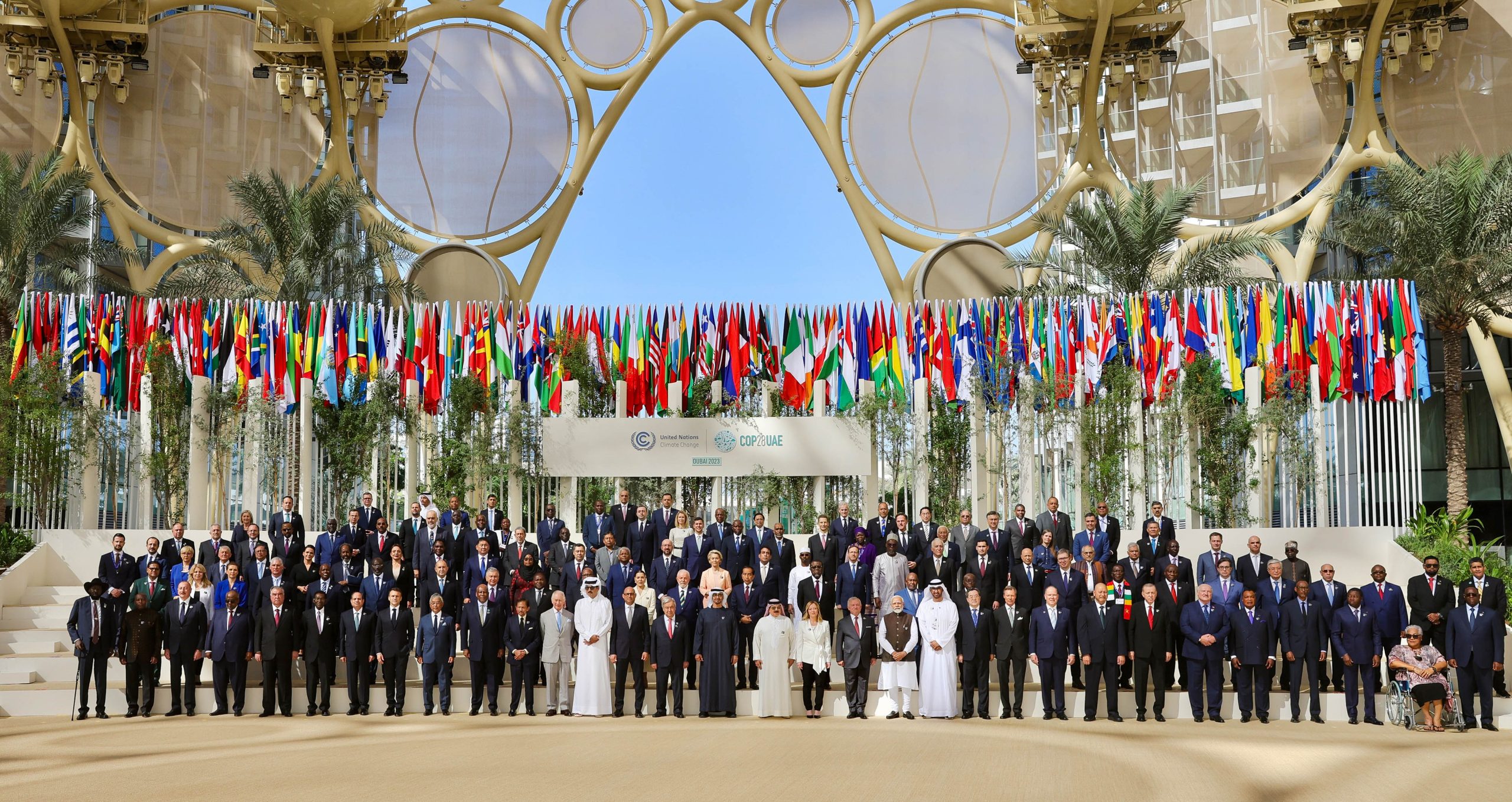COP28: Long-awaited progress after 30 years

H.E. Dr. Sultan Al Jaber, COP28 President and H.E Simon Stiell, UNFCCC Executive Secretary during the end of the Closing Plenary at the UN Climate Change Conference COP28 at Expo City Dubai on December 13, 2023, in Dubai, United Arab Emirates. (Photo by COP28 / Mahmoud Khaled)
Billboard
Skyscrapper
Halfpage
After two weeks of intense negotiations, the 28th climate conference in Dubai is over. Surprisingly, the final agreement includes a long-awaited mention of the transitioning away from fossil fuels. Read more about the conference here.
Transitioning away from fossil fuels
The COP28 climate summit in Dubai finished on December 13th after intense negotiations. The final agreement is seen by many as a big step forward: For the first time in 30 years, nearly every country in the world has agreed to “transition away from fossil fuels” as the main driver of climate change. While long overdue and not legally binding, this is still a landmark agreement. Some oil-producing countries, led by OPEC, worked until the last hours of the conferences to avoid the mention of fossil fuels in the final document but failed.
For the last few years, the discussion about a clear call for a fossil fuel phase-out has been raging at the COP conferences. Many countries are still frustrated that this year’s agreement only mentions the “transitioning away from” rather than the full “phasing out” of fossil fuels. There are also many loopholes in the text that could enable the production and consumption of coal, oil, and gas to continue.
After an early breakthrough on launching a fund that will pay for the “loss and damage” from climate change during COP28, many countries were left disappointed. Most notably, there was a lack of new financial commitments from wealthier countries to support the transitioning away from fossil fuels and the adaptation to climate impacts.
Tripling renewable energies by 2030
COP president Sultan Al Jaber had been criticised for denying the science behind the negative environmental impacts of fossil fuels. While he now received applause for managing to broker an agreement that finally mentions fossil fuels, the presidency was overshadowed by allegations that the United Arab Emirates used COP28 to make deals on oil and gas. Many representatives from the fossil fuel industry were present. Still, 200 countries agreed on cutting CO2 emissions from future oil and gas.
The Dubai agreement marks the first “global stocktake” that shows how countries can and must accelerate climate action in order to meet the goals of the landmark Paris Agreement from 2015. This comes with many international pledges to triple renewables, take action on biodiversity, and reduce company emissions. 100 countries out of 200 member countries pledged to triple the world’s renewable energies installed by 2030 and to double efficiency rates by the end of the decade.
Some progress was made regarding methane emissions, which constitutes the second worst greenhouse gas after CO2. Fifty oil companies that make up half of global production pledged to end routine flaring from active oil and gas wells. Flaring is the process of burning excess methane. If this pledge is successful, it will avoid a rise of 0.1 C degrees in temperature.

Not even close to a triumph?
A lot of criticism came from the small island states and developing countries. For example, the head negotiator for Samoa said that shifting away from fossil fuels needs to have a wider basis in the economy and not just in energy systems. She also showed concerns that carbon capture and storage are still permissible, which might be a license for some companies to continue producing oil and gas.
And while an agreement to officially end the era of fossil fuels would have been very welcome 10 or 20 years ago, it is now overdue. Delegates at COP28 celebrated the result, but according to The Guardian, “it wasn’t the gamechanger needed to prevent climate catastrophe, to end the era of deadly fossil fuels, or to save the north star of 1.5C. To claim that it is a triumph, or anything even close to that, is simply a lie.”
What’s next? A key date for countries is early 2025, when the next Nationally Determined Contributions are due. And in late 2024, COP29 will take place in Baku, Azerbaijan, where observers expect a lot of Russian influence and fear that oil producers might try to backtrack. Still, an oil-producing country has managed to introduce an important commitment into a COP. It is now up to member states to take this signal for the end of the fossil fuel era seriously.
Read more: Last year’s COP27 brought progress on loss and damage, but was rather disappointing overall.












